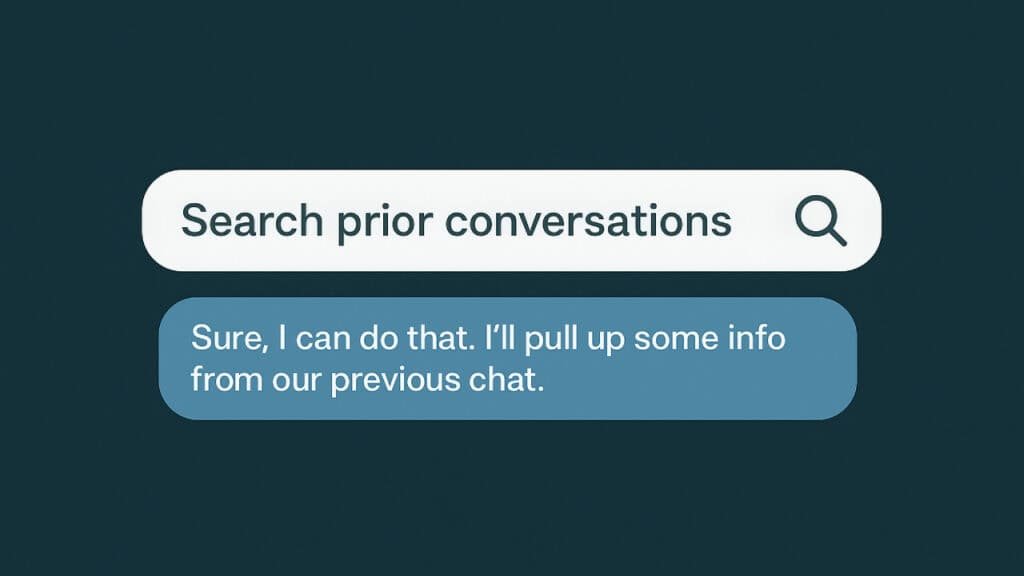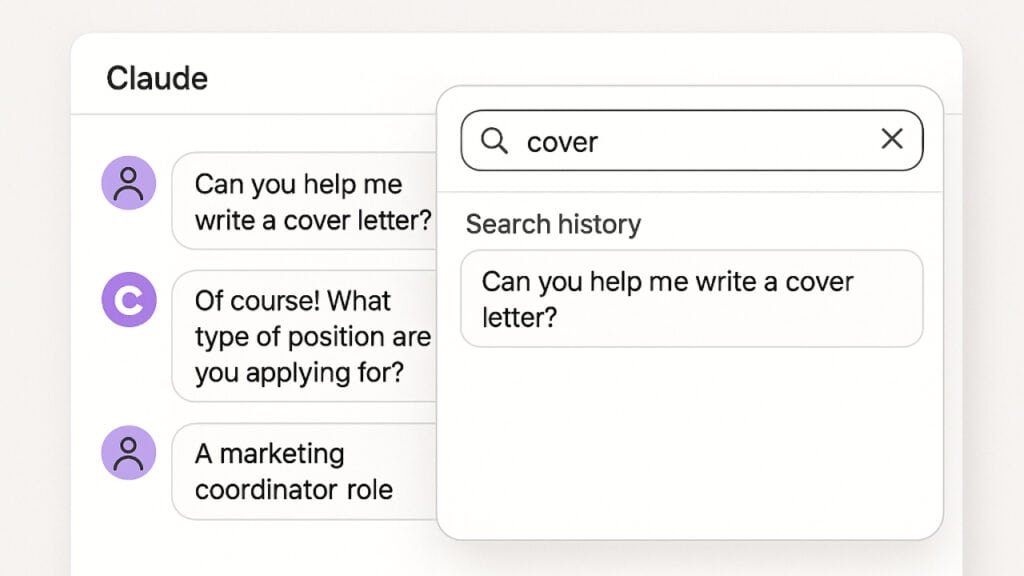Chat History Search
This feature lets users query past conversations to retrieve context seamlessly. If you need to revisit details on a project or discussion, simply ask Claude to search your history. It can surface relevant past chats without repeating background info. For professionals juggling multiple projects, this is a major productivity boost, preventing wasted time and redundant explanations.
Custom Preferences
Users can define profile-wide preferences in settings—describing preferred writing approaches, tone, terms, or routines. Claude then tailors responses accordingly, making your experience feel more intuitive and aligned with your workflow. For example, writers can instruct Claude to always produce concise drafts, while researchers may want detailed explanations with references. These small adjustments add up to a consistently smoother interaction, showing the depth of the Claude significant personalization upgrade.
Project-Based Instructions
You can assign project-specific instructions that guide Claude’s behavior within a context. Whether drafting emails, brainstorming, or planning travel, Claude adapts to the instructions tied to that project for consistency and relevance. This compartmentalization is particularly valuable for freelancers, students, and knowledge workers who manage multiple streams of work simultaneously.
Tone Controls
Claude now supports adjusting voice and tone—from formal to conversational—based on user preference or task. This control helps maintain the right mood and clarity regardless of context. A formal report can sound polished and professional, while a casual message for social media feels approachable and human. Instead of editing tone manually, users can trust Claude to get it right instantly, another benefit introduced by the Claude significant personalization upgrade.
Opt-In Memory for Privacy-First Recall
The new memory feature lets Claude recall past interactions only when explicitly enabled. Unlike competitors’ auto-remember models, Claude respects user privacy by not referencing past chats unless asked. This approach highlights Anthropic’s focus on building trustworthy AI systems—capable of powerful recall without overstepping boundaries. For many users, this is the most reassuring aspect of the Claude significant personalization upgrade.

How to Make the Most of Claude’s Personalization Features
Here are practical ways to leverage the upgrade:
1. Enable chat search to continue long-term projects without explaining yourself again.
2. Set custom preferences for tone and structure—valuable for writers or professionals.
3. Use project-based instructions to compartmentalize tasks and keep focus.
4. Adjust tone controls to fit the audience—professional or casual as needed.
5. Opt into memory only for complex workflows you revisit, ensuring data stays private otherwise.
How Claude Stands Out from Competitors
Anthropic’s strategy with Claude differs from other AI assistants like ChatGPT or Microsoft Copilot. While those tools emphasize integrations and large ecosystems, Claude’s new focus is on individual user empowerment through personalization. Its opt-in memory option directly addresses privacy concerns that often surround persistent AI models, giving users more confidence to use the tool in sensitive contexts. The Claude significant personalization upgrade therefore sets a new benchmark in trust-driven AI development.
In contrast, many AI platforms automatically collect user behavior data to improve performance, sometimes without fully transparent options for control. Claude’s design offers a refreshing alternative, with the promise that personalization does not have to come at the cost of user trust.
Impact on Productivity and Workflow
The personalization upgrade is more than just a feature set—it’s a shift in how people can integrate AI into their routines. Knowledge workers can rely on Claude to maintain continuity across sessions, while creatives can ensure that their stylistic quirks are preserved. For teams, project instructions allow collaboration without constant redefinition of context.
Businesses adopting AI at scale can also benefit. By giving employees tailored assistants, organizations can reduce repetitive queries and streamline workflows. Over time, this could translate into measurable gains in efficiency, reduced email clutter, and faster content generation. These outcomes highlight why the Claude significant personalization upgrade is not only user-friendly but also business-ready.
Looking Ahead: The Future of Personal AI
The Claude significant personalization upgrade suggests a broader trend: AI assistants evolving from static tools into dynamic partners. The ability to learn preferences, recall selectively, and adapt tone aligns closely with how humans collaborate. This could redefine not only how individuals work with AI, but also how teams and organizations build digital ecosystems around them.
For users, the key takeaway is control. By putting personalization features in the hands of the user, Anthropic acknowledges that the future of AI requires transparency, flexibility, and respect for privacy. The company’s direction is a strong signal that we are moving toward AI that truly feels personal—without being invasive.
In sum, the Claude significant personalization upgrade transforms Claude from a one-size-fits-all chatbot into a dynamic assistant that molds to your needs. The combination of search, preferences, project structuring, tone, and privacy-centric memory creates a tailored and professional AI experience that stands apart from the competition.
Discover more AI innovation on our AI page.
Sources: Tom’s Guide, The Verge
Did you enjoy the article?
If yes, please consider supporting us — we create this for you. Thank you! 💛



